Understanding the Impact of Skin Type on Beauty Product Selection
Every individual's skin is unique, and understanding its type is crucial for effective skincare and makeup routines. Skin type, influenced by genetics, environment, and lifestyle factors, plays a pivotal role in determining the suitability of beauty products. This comprehensive blog aims to delve into the intricacies of various skin types and their implications on product selection, empowering readers to make informed choices for healthier, radiant skin.
Normal Skin:
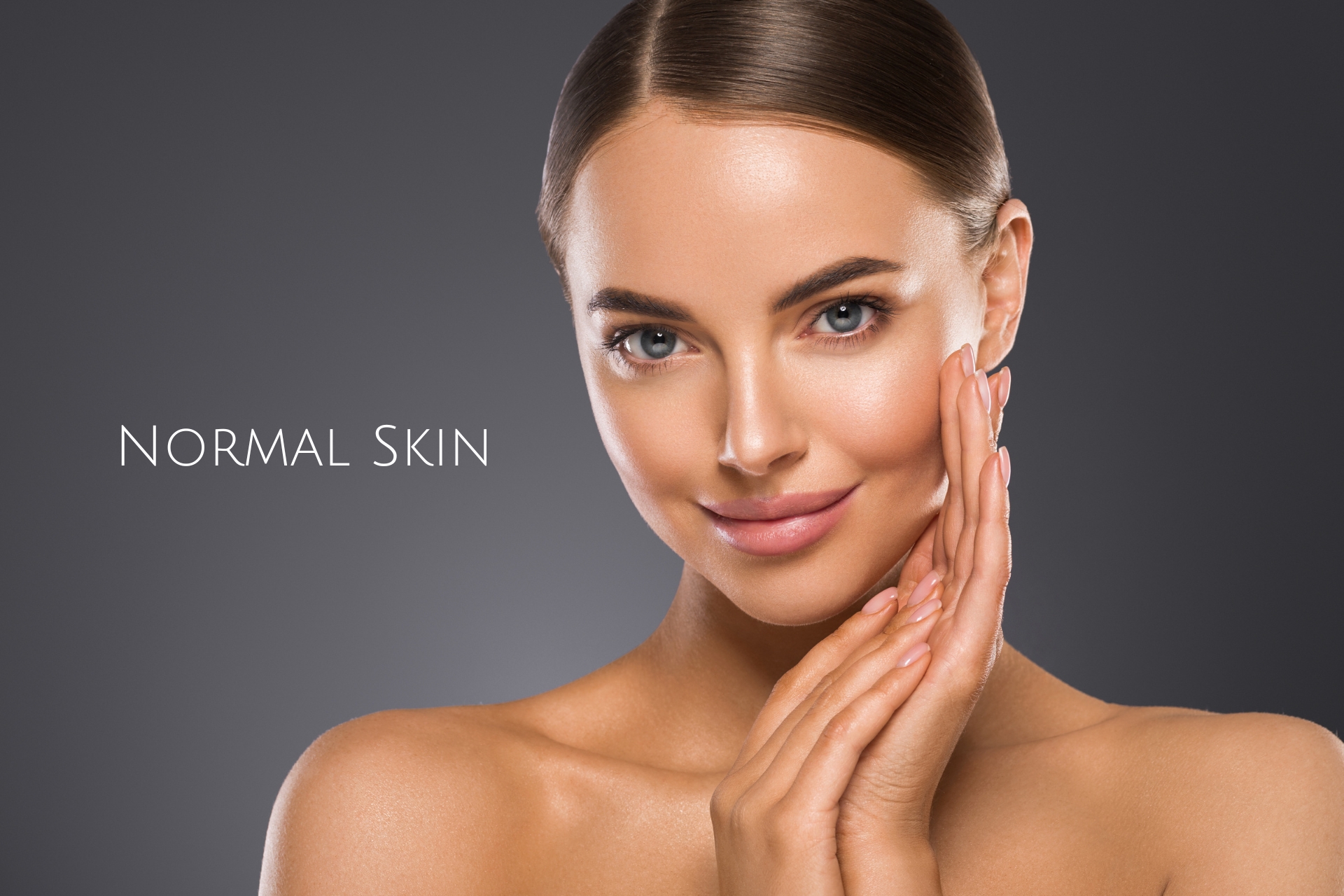
Normal skin is characterized by balanced hydration levels, neither too dry nor too oily, with a smooth and even texture. It typically has small pores and few imperfections, maintaining a healthy and radiant appearance. Normal skin rarely experiences sensitivity or irritation to skincare products or environmental factors. It exhibits optimal moisture retention and oil production, resulting in a natural glow. Normal skin is resilient and adaptable, often tolerating a variety of beauty products without adverse reactions. It is less prone to acne, breakouts, or excessive shine compared to other skin types. Individuals with normal skin may benefit from a simple skincare routine focused on maintaining hydration and protection from sun damage. Regular cleansing, moisturizing, and sun protection are key to preserving the health and appearance of normal skin. While normal skin may not require specialized treatment, it still benefits from proper care to support its natural balance and vitality. Understanding normal skin allows individuals to choose skincare products that enhance its inherent qualities and promote long-term skin health.
Oily Skin:
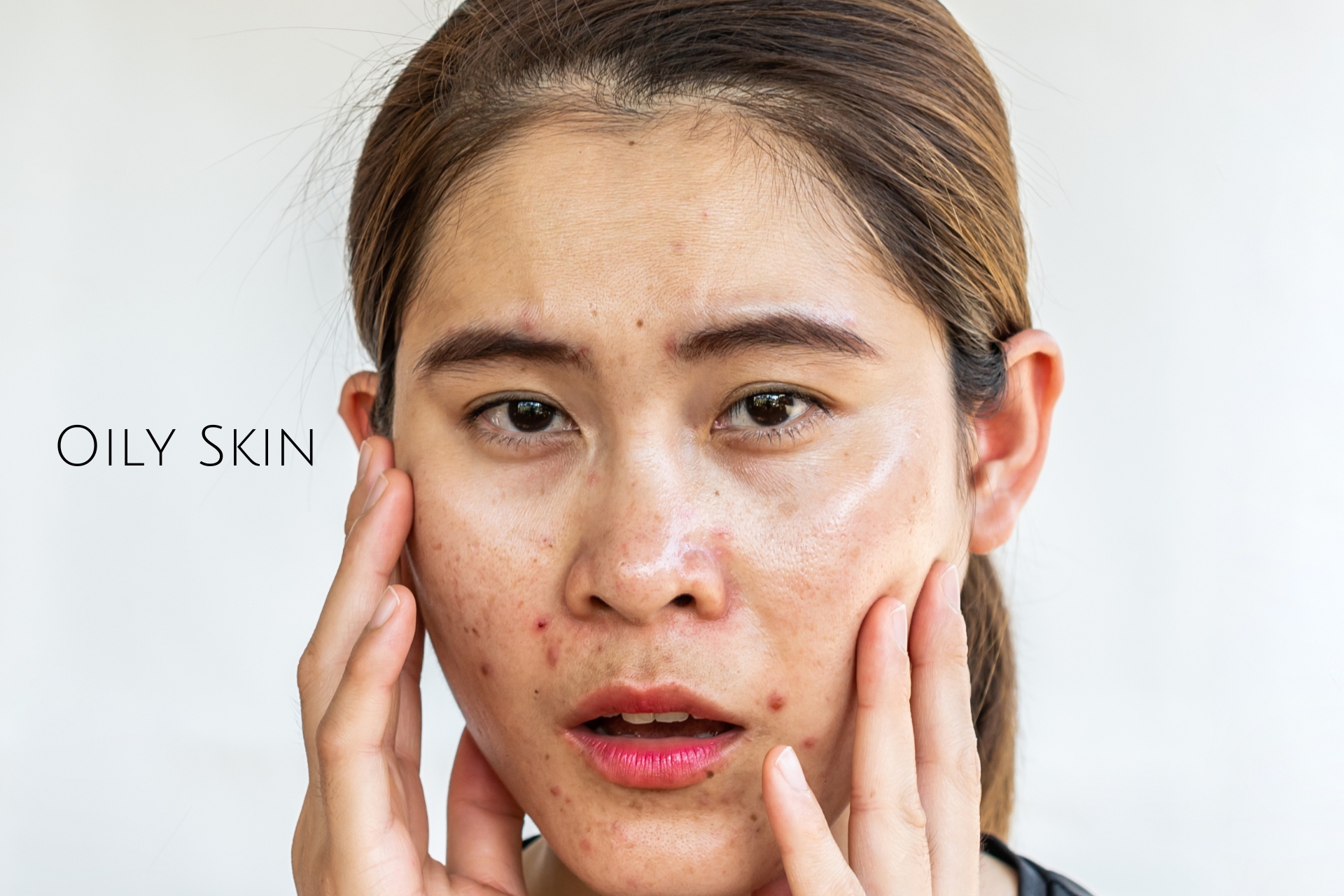
Oily skin is a skin type characterized by an overproduction of sebum, the skin's natural oil. Excessive oil production can lead to a shiny appearance, larger pores, and an increased likelihood of developing acne and breakouts. Oily skin often has a thicker texture and may feel greasy to the touch, particularly in the T-zone (forehead, nose, and chin). Individuals with oily skin may experience frequent blemishes, blackheads, and whiteheads due to clogged pores. While oily skin can be genetic, hormonal changes, diet, and environmental factors can also contribute to its development. Proper skincare for oily skin involves using gentle, oil-free cleansers, exfoliating regularly to remove dead skin cells and unclog pores, and using lightweight, non-comedogenic moisturizers to hydrate without adding excess oil. Additionally, incorporating products containing ingredients like salicylic acid or benzoyl peroxide can help regulate oil production and prevent breakouts. Despite its challenges, oily skin also has benefits, such as a reduced likelihood of premature aging and fewer fine lines due to the skin's natural moisture barrier. Understanding how to manage and care for oily skin can help individuals maintain a healthy and balanced complexion.
Dry Skin:
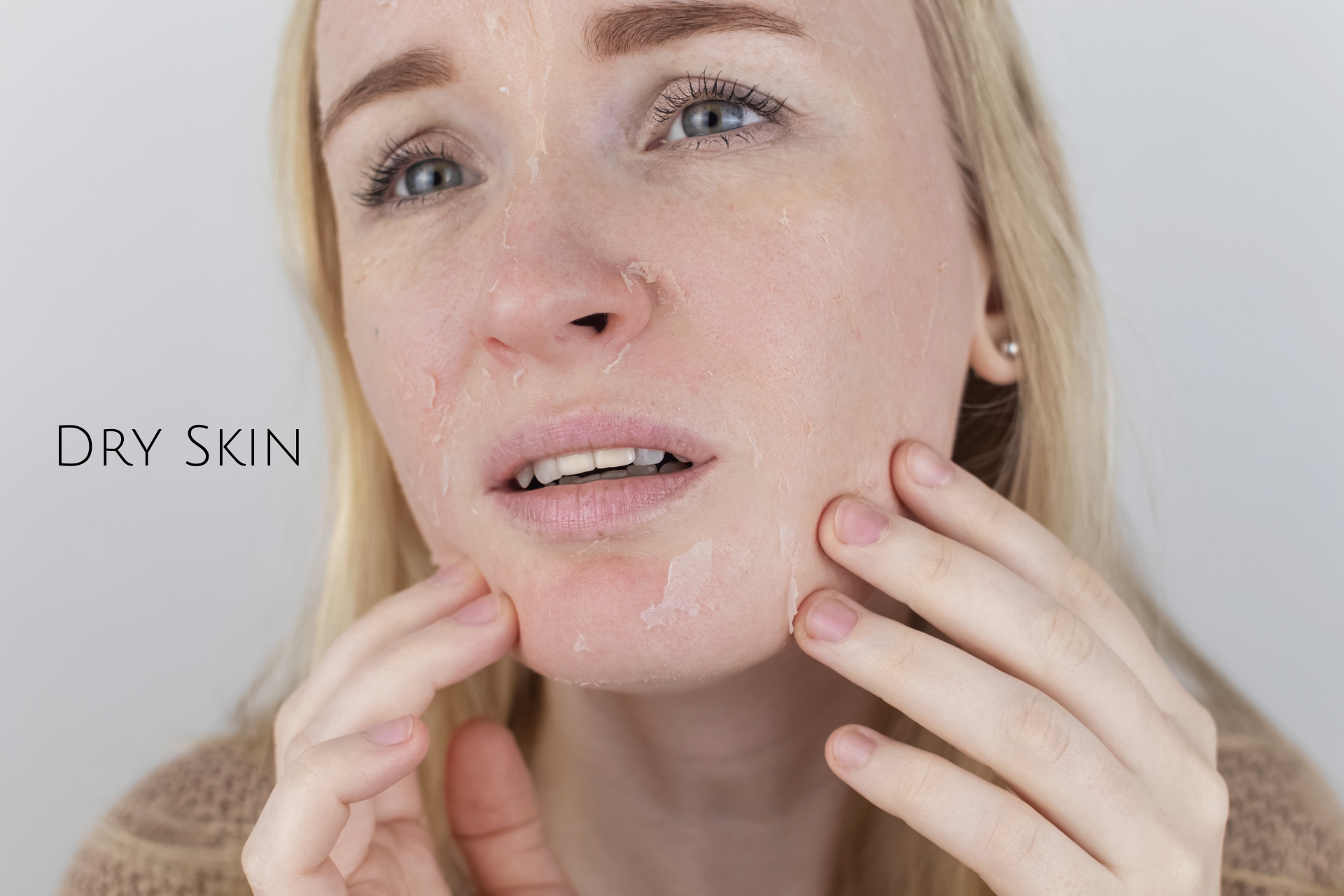
Dry skin is a skin type characterized by a lack of moisture and oil production, resulting in tightness, flakiness, and a rough texture. Dry skin can be genetic, but environmental factors such as cold weather, low humidity, excessive sun exposure, and harsh skincare products can exacerbate its symptoms. Proper skincare for dry skin involves using gentle, hydrating cleansers that do not strip the skin of its natural oils, followed by moisturizers rich in emollients, humectants, and occlusivesTo preserve moisture and bolster the skin's protective shield. Additionally, incorporating products containing ingredients like hyaluronic acid, glycerin, ceramides, and oils can help replenish lost moisture and improve skin texture. Regular exfoliation with gentle scrubs or chemical exfoliants can also help remove dead skin cells and promote cell turnover, revealing smoother, more radiant skin. Understanding how to hydrate and protect dry skin is essential for maintaining its health and appearance, preventing discomfort, and achieving a hydrated, supple complexion.
Combination Skin:
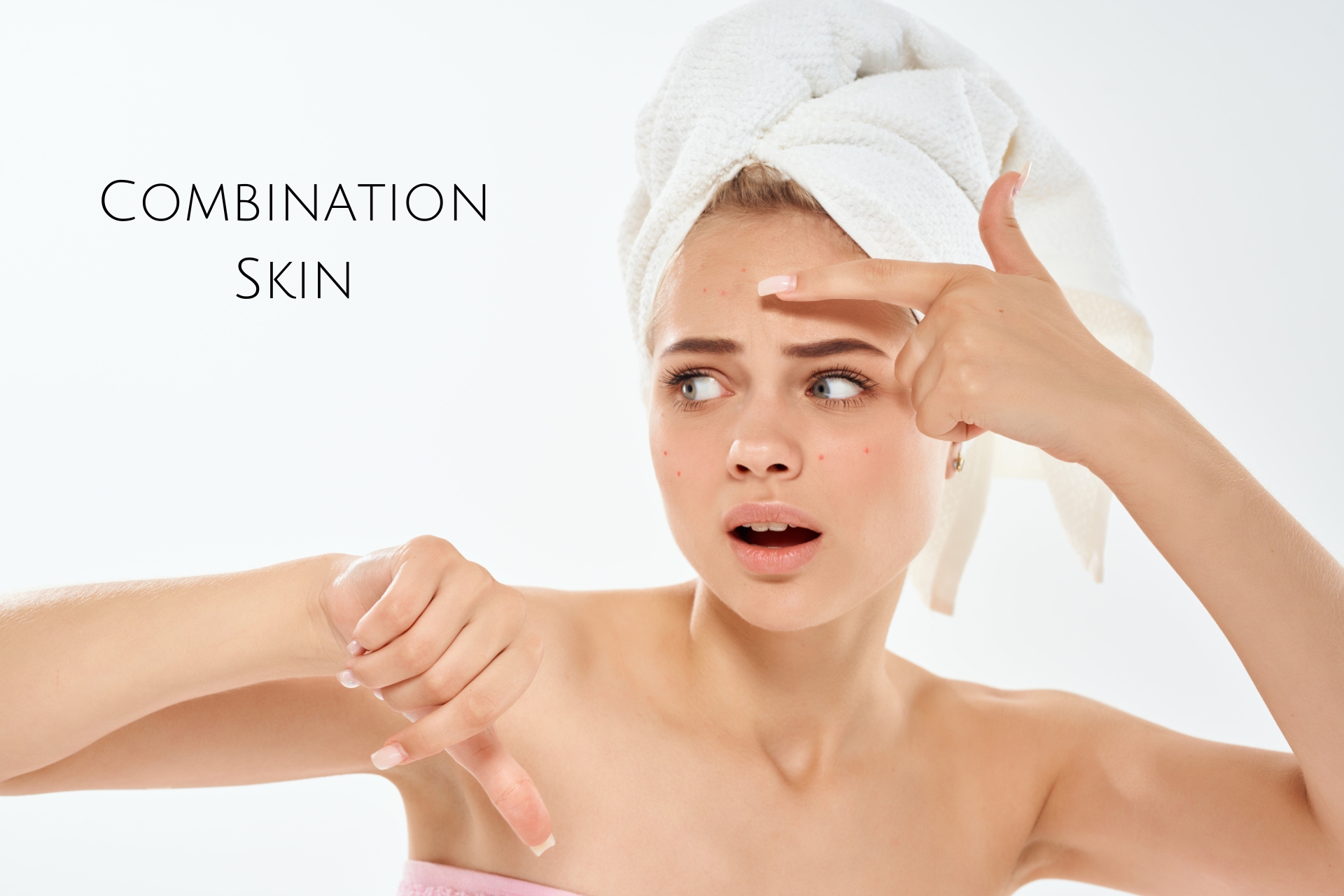
Combination skin is a skin type characterized by a mixture of oily and dry areas on the face. Generally the T-zone (forehead, nose, and chin) tends to be oily, while the cheeks and other areas may be normal or dry. This combination of skin types can present challenges in skincare as different areas of the face require different treatments. The oily T-zone may be prone to shine, enlarged pores, and occasional breakouts, while the dry or normal areas may experience tightness, flakiness, and dullness. Proper skincare for combination skin involves using gentle, balancing cleansers that remove excess oil without over-drying the skin. Lightweight, oil-free moisturizers are ideal for hydrating dry areas without adding greasiness to oily regions. Targeted treatments, such as mattifying products for the T-zone and hydrating serums or creams for dry areas, can help address specific concerns. Additionally, using SPF protection daily is essential to prevent sun damage and maintain overall skin health. Understanding how to balance the needs of different skin areas allows individuals to tailor their skincare routine effectively, ensuring optimal hydration, clarity, and balance for combination skin.
Sensitive Skin:
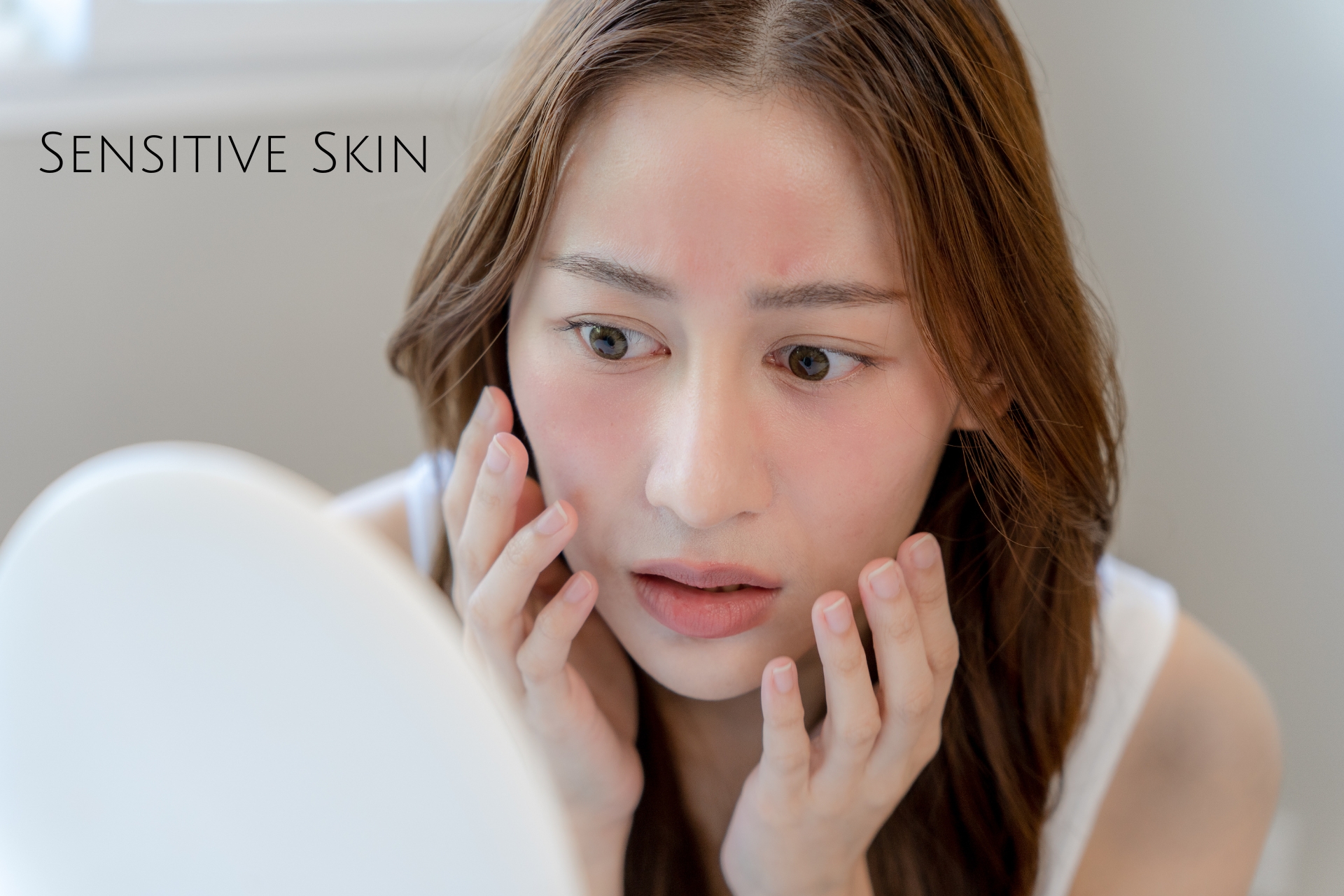
Sensitive skin is a skin type characterized by heightened reactivity and intolerance to certain skincare products, environmental factors, or stimuli. Common triggers for sensitive skin include harsh ingredients, fragrances, dyes, alcohol, and extreme temperatures. Sensitive skin can be genetic or develop as a result of underlying skin conditions such as rosacea, eczema, or allergies. Managing sensitive skin requires using gentle, fragrance-free, hypoallergenic skincare products formulated for sensitive skin types. These products should contain soothing ingredients such as aloe vera, chamomile, and oat extract to calm and hydrate the skin without causing irritation. Additionally, individuals with sensitive skin should avoid over-exfoliating, limit exposure to environmental aggressors, and protect their skin from the sun using broad-spectrum sunscreen. Understanding and identifying triggers for sensitivity can help individuals develop a personalized skincare routine that minimizes discomfort and promotes skin health and comfort.
Choosing Beauty Products According to Skin Type:
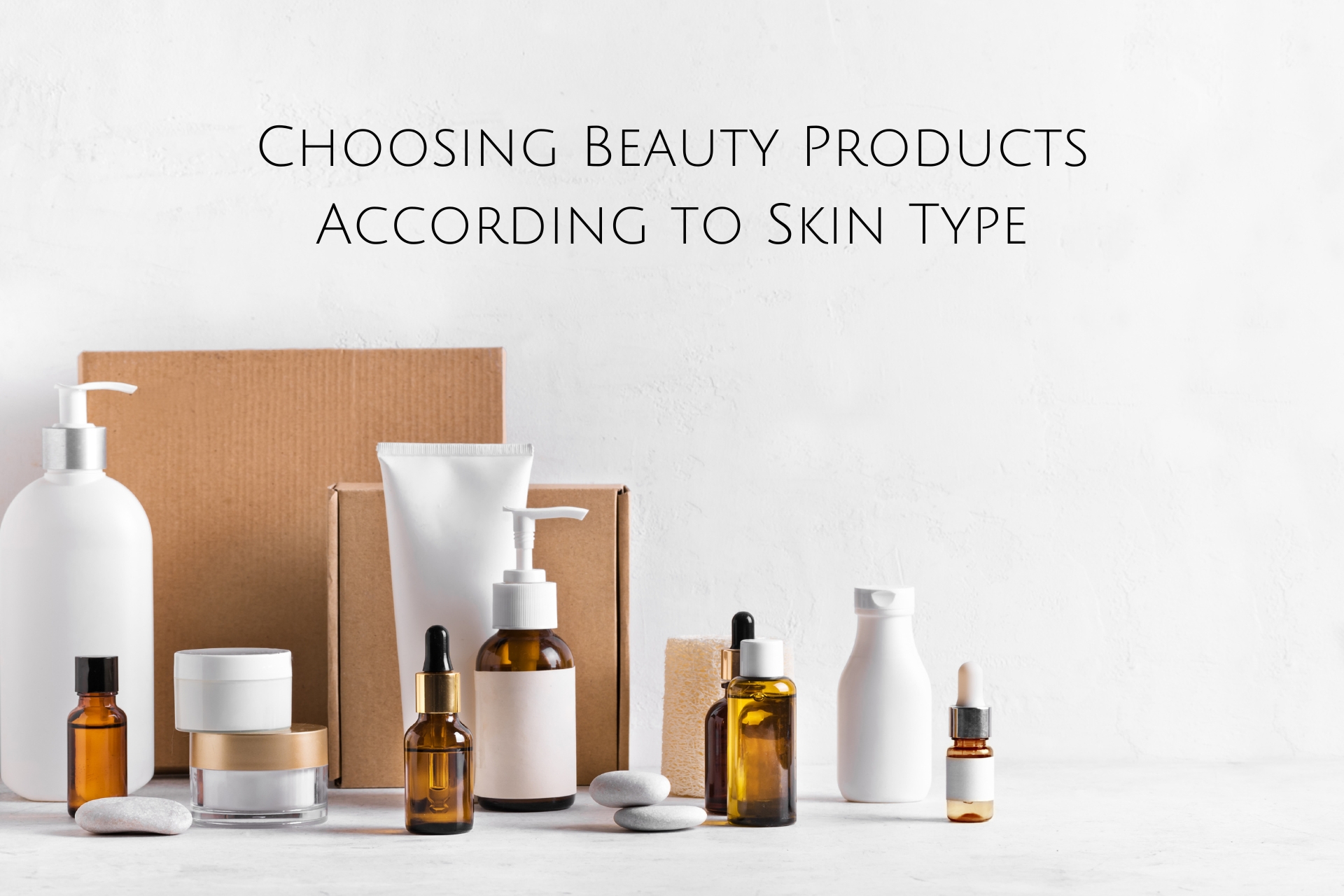
Cleansers:
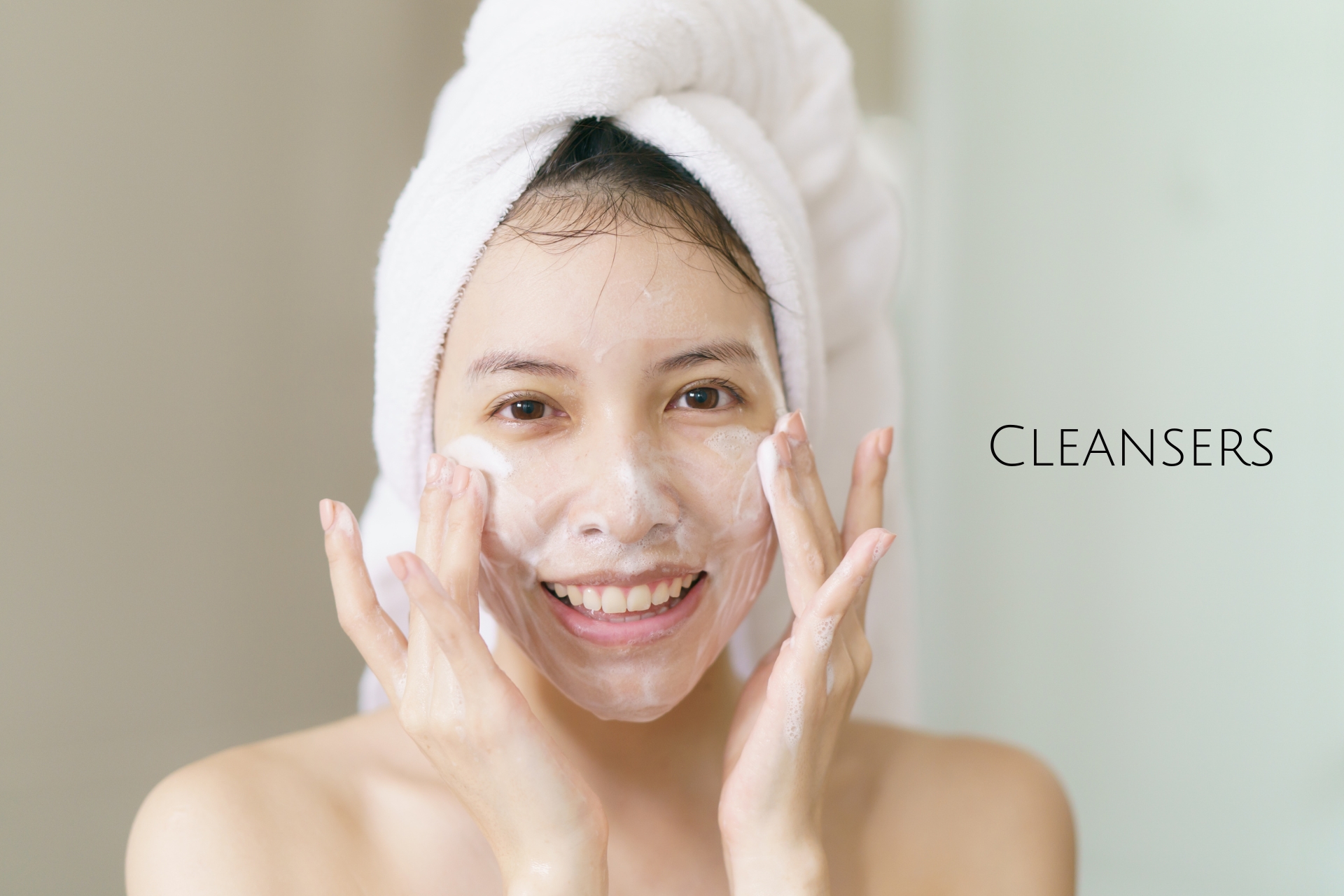
Gentle, pH-balanced cleansers are essential for all skin types. Those with oily skin may benefit from foaming or gel-based cleansers that remove excess oil without stripping moisture. Dry and sensitive skin types should opt for hydrating, non-irritating cleansers that preserve the skin's natural oils.
Moisturizers:
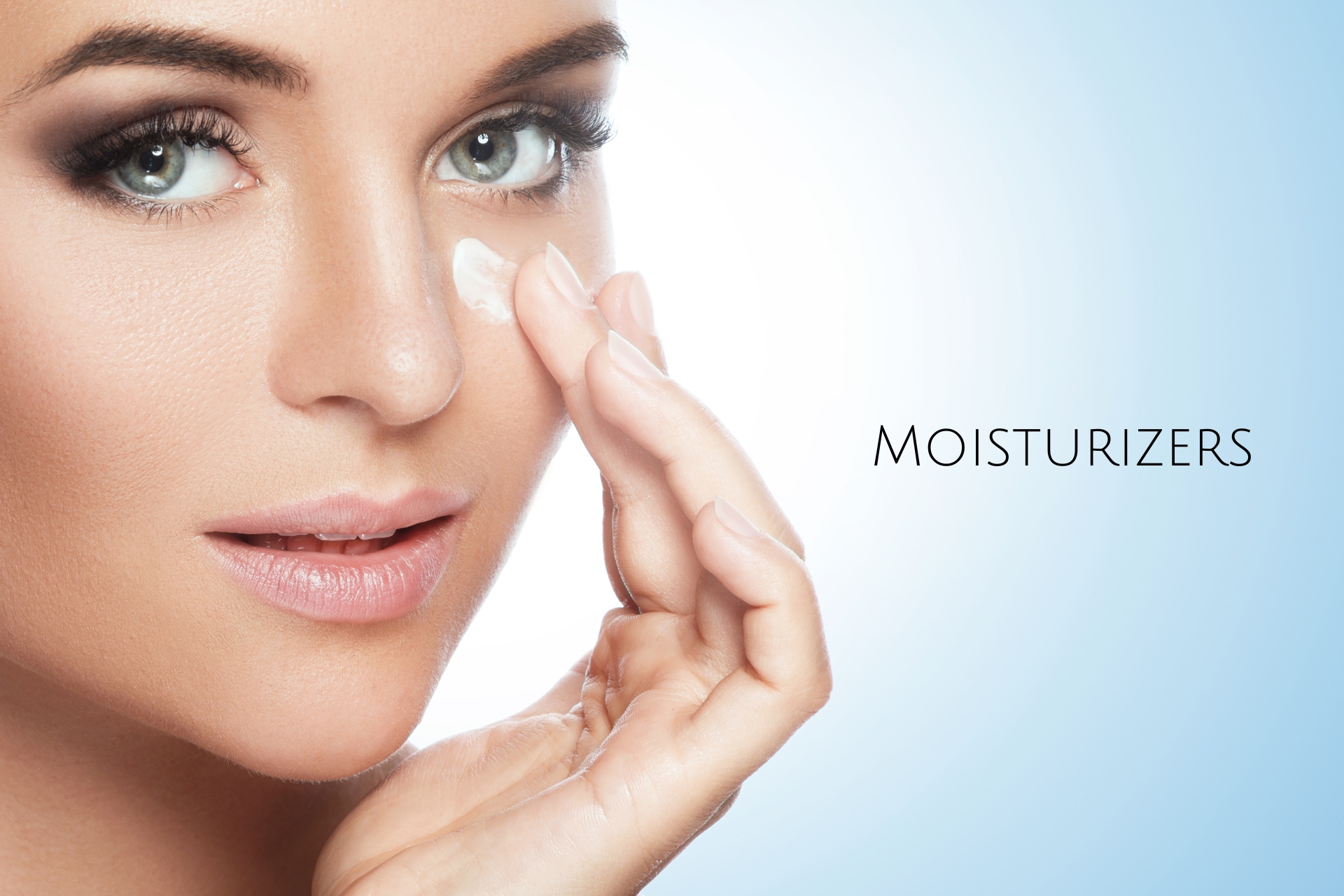
Hydration is key for all skin types, but the formulation varies based on individual needs. Oily skin benefits from lightweight, oil-free moisturizers with mattifying properties. Dry skin requires rich, emollient moisturizers that provide long-lasting hydration. Combination skin may benefit from layering lightweight gels or serums in oily areas and richer creams in dry regions.
Sunscreen:
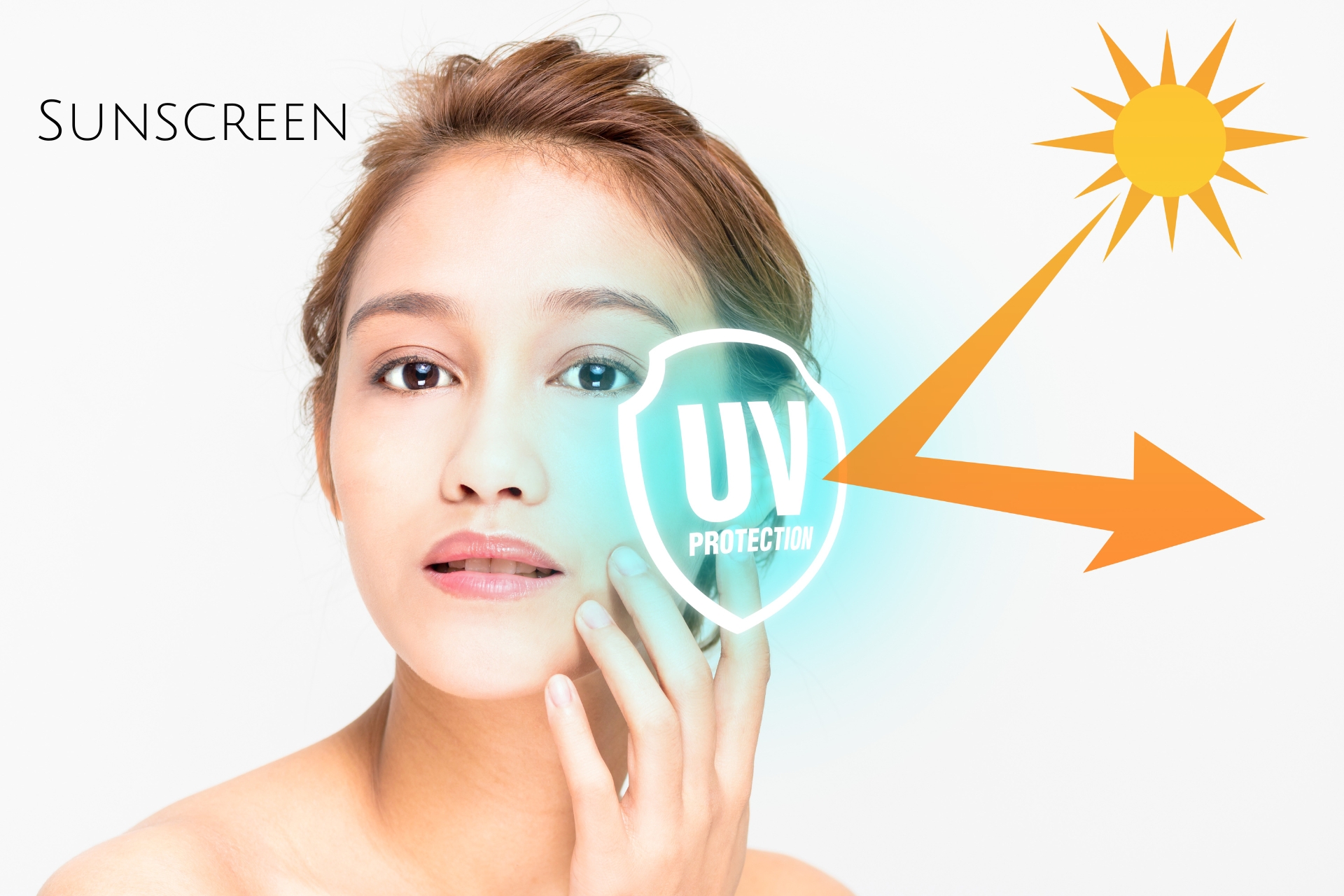
Regardless of skin type, sunscreen is non-negotiable for skin health and protection against UV damage. Broad-spectrum sunscreens with SPF 30 or higher are recommended for all skin types. Lightweight, non-comedogenic formulations are ideal for oily and combination skin, while dry and sensitive skin types may prefer moisturizing, mineral-based sunscreens.
Serums and Treatments:
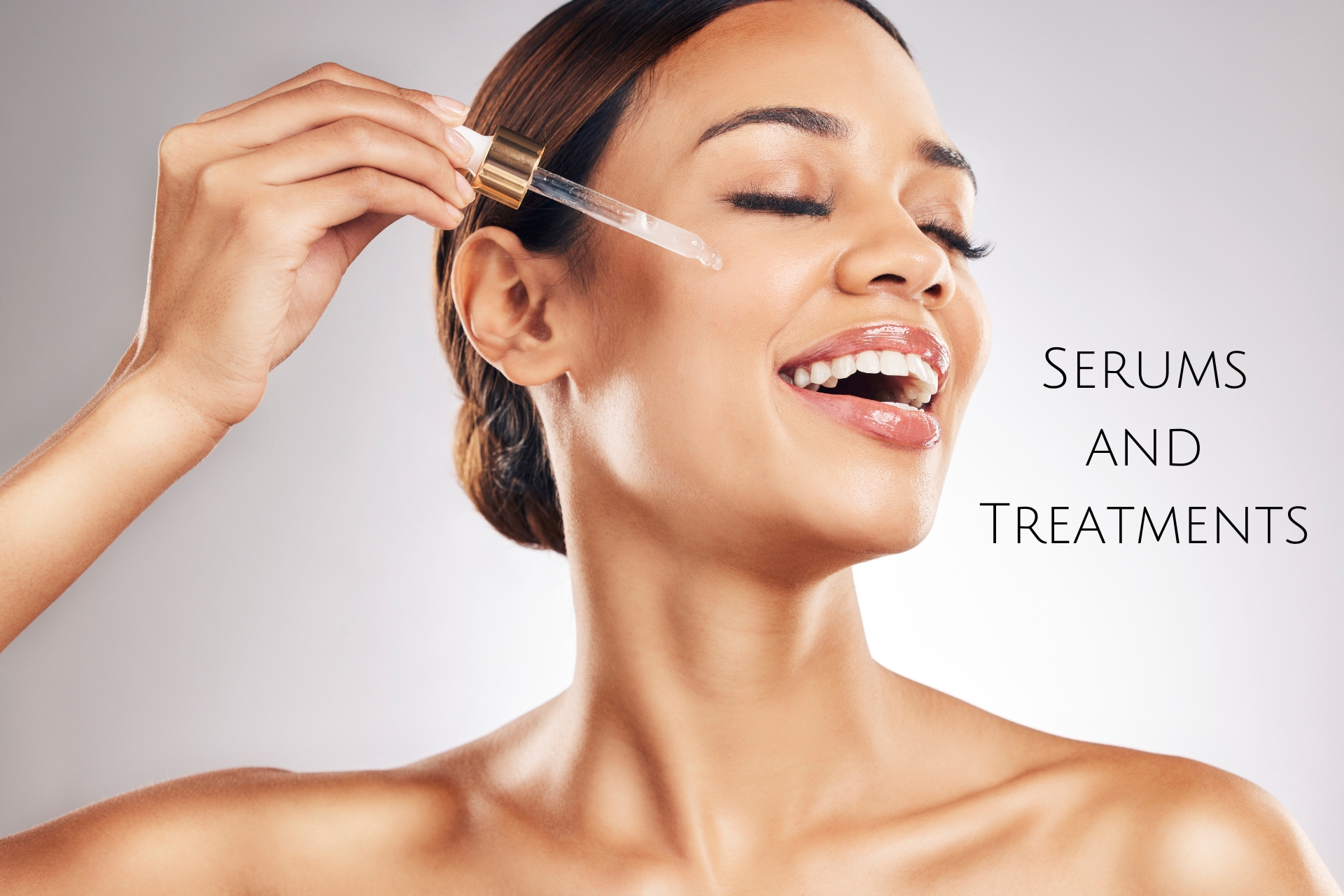
Targeted serums and treatments address specific skin concerns, such as acne, aging, hyperpigmentation, and dehydration. Ingredients like retinol, vitamin C, niacinamide, and hyaluronic acid offer various benefits based on skin type and individual needs.
Makeup:
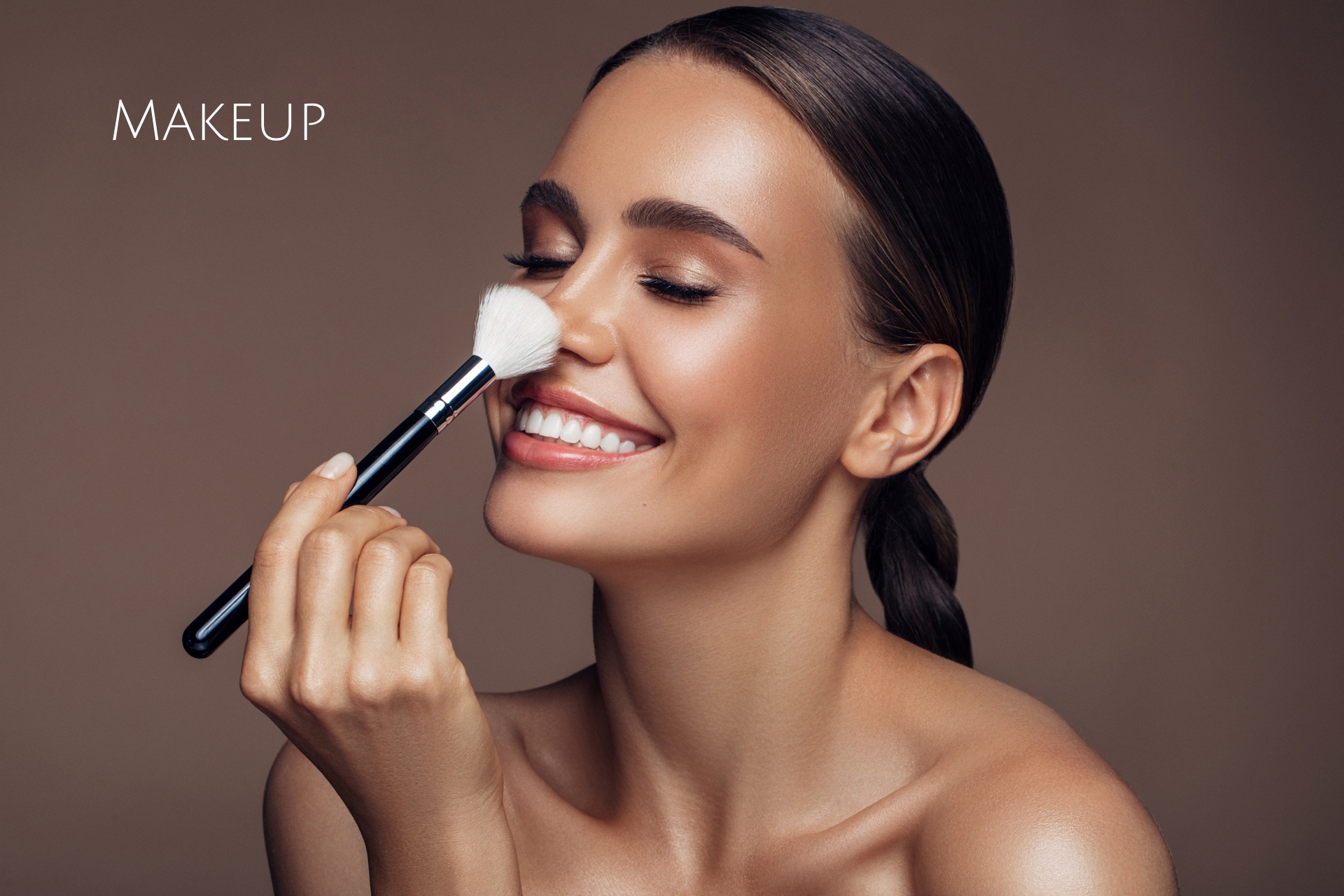
When selecting makeup products, it's essential to consider the skin's texture, tone, and sensitivity. Oil-free, long-wearing formulas are suitable for oily skin, while hydrating, luminous foundations work well for dry skin. Mineral-based and hypoallergenic makeup options are preferred for sensitive skin types.
In conclusion, understanding your skin type is fundamental to curating an effective beauty regimen. By recognizing the unique characteristics and needs of your skin, you can make informed decisions when selecting skincare and makeup products. Whether your skin is oily, dry, combination, or sensitive, there are tailored solutions available to nurture, protect, and enhance its natural beauty. By prioritizing products that cater to your skin's specific requirements, you can achieve optimal results and radiate confidence from within.
Recent Posts
-
The Functional Food Revolution: How Nutraceutical Snacks Are Changing the Future of Health
Introduction: The global snacking landscape is undergoing a profound transformation. Gone are the da
-
The New Generation of Indian Skincare: Bridging Ayurveda and Dermatological Science
Introduction: For millennia, Indian royalty relied on Kumkumadi Taila—the legendary saffron-infused
-
Red Nails vs Pink Nails: Which Looks More Romantic for Valentine’s Day?
Introduction: Valentine's Day approaches, and with it comes the timeless question: red nails or pink






